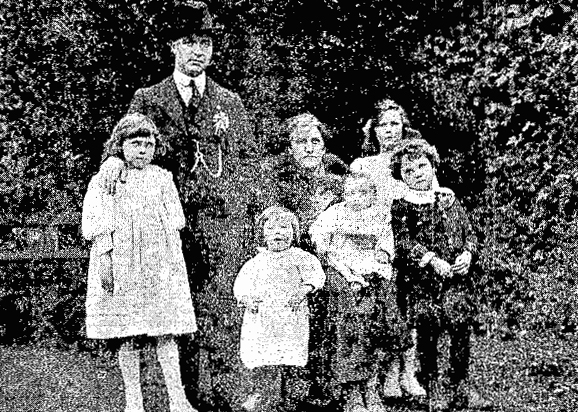Tomás Mac Curtain among newly elected Irish mayors
Cork, 31 January 1920 - Yesterday brought a dramatic sequel to last month’s municipal elections, as many Sinn Féin candidates, after a strong showing at the polls, were voted into mayoral offices across the country.
Alderman Tomás Mac Curtain, despite being ‘on the run’ since a recent round-up of Sinn Féin activists, was present as he was elected to the office of Lord Mayor in Cork amidst scenes of great enthusiasm. The council chamber was packed for the occasion and the municipal flag on City Hall was temporarily replaced with one bearing Sinn Féin colours.
Mac Curtain was proposed for the position by Councillor Mícheál Ó Cuill and seconded by Councillor Terence MacSwiney, both of whom spoke in Irish.
Sir John Scott, Unionist, lamented the lack of competition for the office but congratulated all present on the harmony and unanimity that had so far prevailed, acknowledging that all present were Irishmen.
Following his election as Lord Mayor, Tomás Mac Curtain remarked that Sinn Féin was pleased that certain minorities were represented as ‘in every stable government, minorities were entitled to representation. Our motto for the future, then, must be self-reliance first, and in all normal business of the corporation efficiency and economy.’

Scenes in the Cork Chamber on the election of Tómas Mac Curtain as Mayor. (Image: Cork Examiner, 2 Februay 1920)
In Dublin Alderman Thomas Kelly was unanimously elected as Lord Mayor for the year commencing 23 February 1920. He is currently incarcerated in Wormwood Scrubbs prison.
Other Sinn Féin representatives returned to mayoral
positions include Councillor Daniel F. O’Meara who was
unanimously re-elected in Clonmel. In Drogheda, a former
‘German Plot’ deportee, Alderman Philip Monahan was
unanimously elected mayor. In Limerick, the election of Councillor
Michael O’Callaghan was accompanied by crowds singing the
‘Soldier’s Song’.
A feature of the proceedings in many of the municipal chambers was
the refusal to nominate individuals as City High Sheriff as this
institution was considered a British office. In Dublin, Cork and
Limerick the councils declined to send to the Lord Lieutenant the
standard nominations for the position.
-2.jpg)
Cartoon depicting Thomas Kelly writing to PM David Lloyd George from Wormwood Scrubbs. (Image: Freeman's Journal, 5 February 1920)
Observing developments, the unionist Irish Times has said that the ‘local administration of the south and west of Ireland is now in the hands of Sinn Féin, a party which publicly repudiates British government.’
The implications of this were clear, the paper claimed. If the government persists with its current plans for home rule for Ireland, the ‘southern state will be turned immediately into an independent Republic… It is clearly established that, if partition is enforced, it will be permanent, and the British Government will have presented a vitally important area of the United Kingdom to an implacable foe.’
Labour, who polled strongly in the elections, returned their only mayor in Wexford – Alderman Richard Corish, who defeated by 7 votes to 4 the Ratepayer’s nominee, Alderman George Hadden.
Alderman Corish is the president of the Trade’s Council and a friend and follower of Jim Larkin and the late James Connolly. In accepting the thanks of the chamber in Wexford, the new Lord Mayor declared that the Labour Party would not make the corporation bankrupt as its members were ‘better versed in economy than the representatives of any other class, for they had to study it from birth’.
[Editor's note: This is an article from Century Ireland, a fortnightly online newspaper, written from the perspective of a journalist 100 years ago, based on news reports of the time.]





















